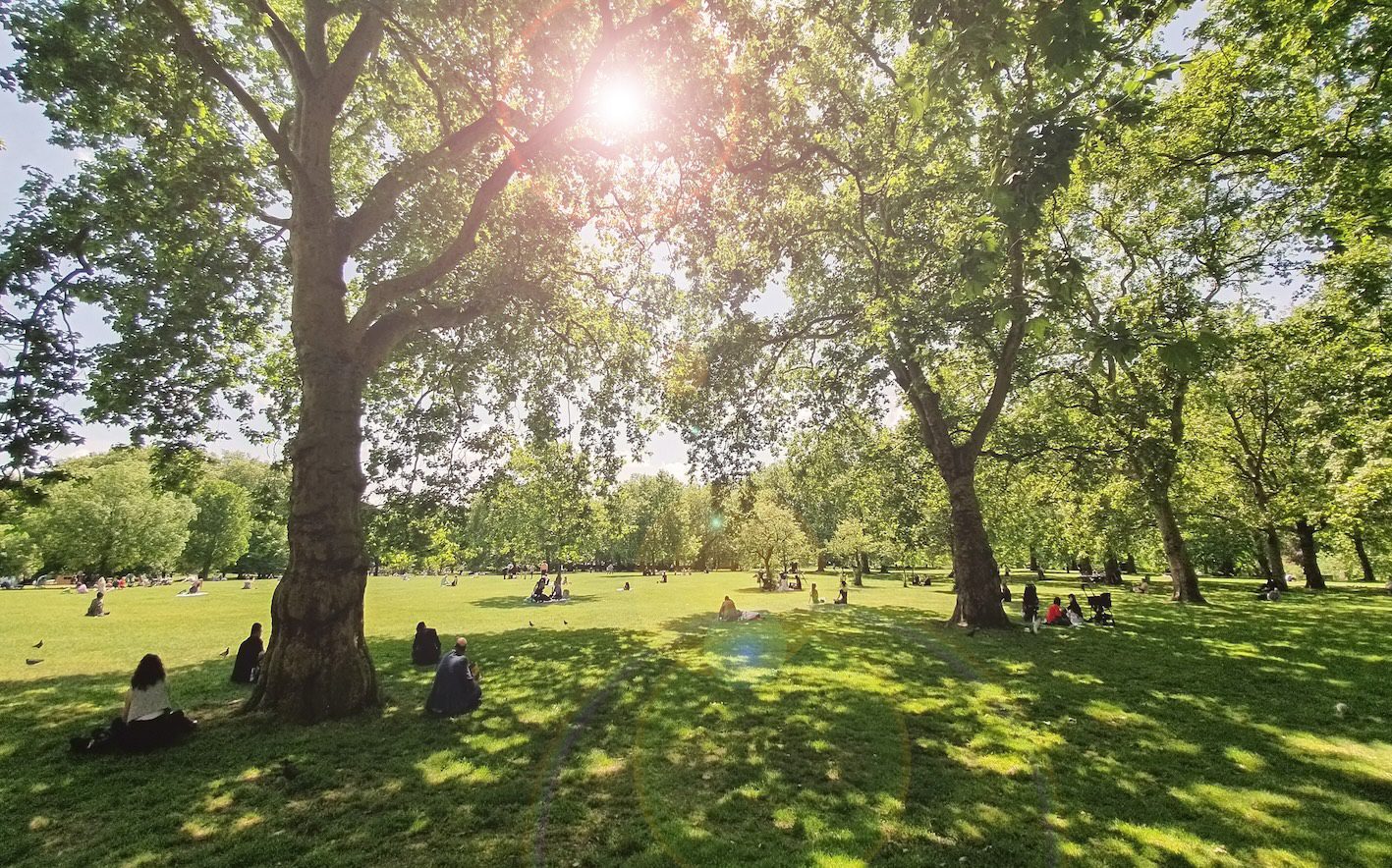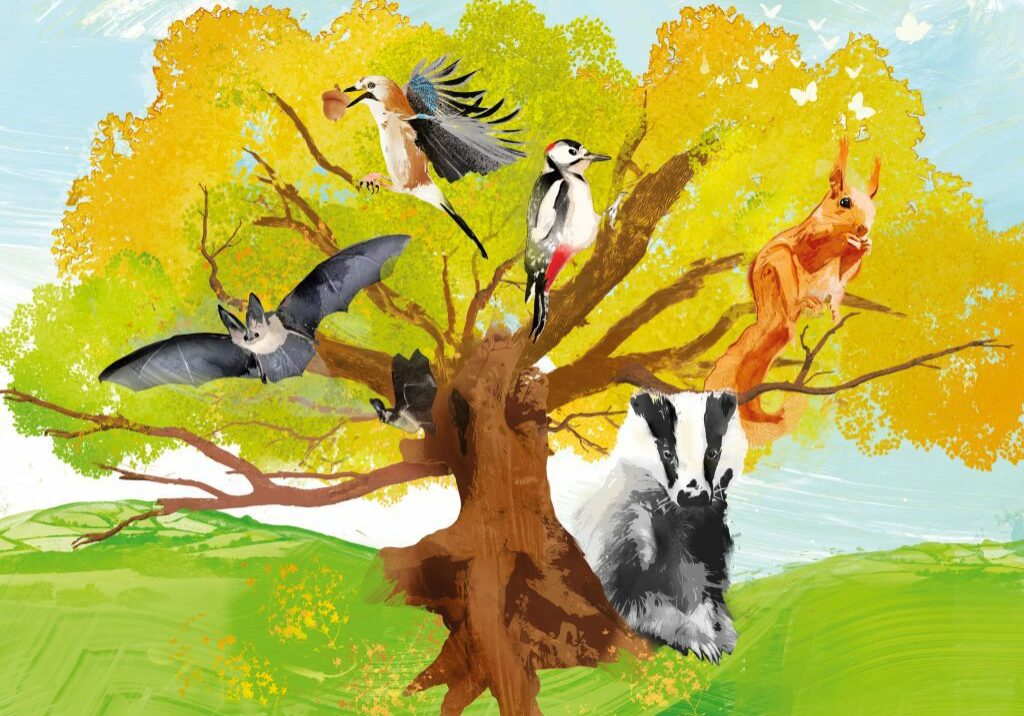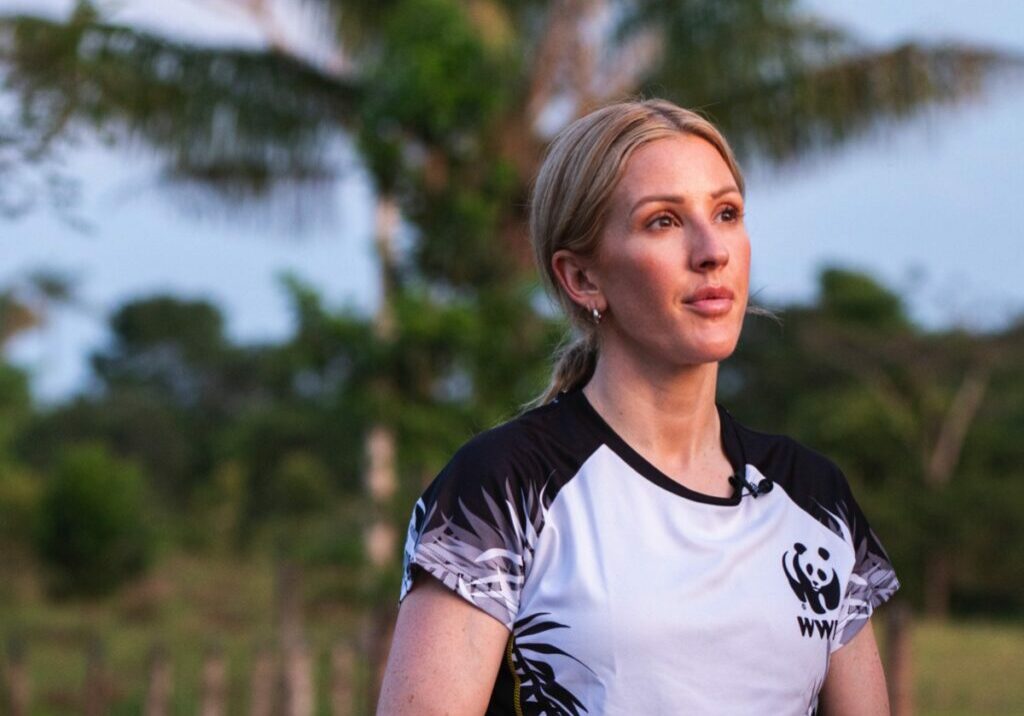
Will Baldwin-Cantello is WWF-UK’s director of nature-based solutions, working on ways to address the ‘triple challenge’: preventing climate change, halting biodiversity loss and meeting the needs of a growing human population.
He’s also the person behind our Thriving With Nature guide, which we produced with the Mental Health Foundation. This downloadable booklet explores ways to improve your wellbeing – season by season – by spending time in nature.
Here, Will explains some of the ways that nature can benefit our mental health. He also talks about eco-anxiety, and how sharing concerns and taking action can help, both by easing worries and encouraging people to discuss the issues that matter.
How can nature have a positive impact on our health?
There’s a regular stream of new research showing how time in nature supports good mental health. There are many ways in which it does this. One thing that seems clear is that the greatest benefits come from feeling connected to nature.
And the senses are a great place to start to explore this connection – it’s about noticing what you’re seeing, smelling, feeling or even tasting in your experiences with nature.
And small doses is all it takes – 10 to 20 minutes a day several times a week can really have an impact. There are benefits to going further, but if that’s all the opportunity you have then this can be enough.
Are there specific benefits from spending time in nature?
There’s lots of different ways that being in nature really helps our mental health, including reduced stress, reducing negative feelings like anger, boosting positive feelings, and boosting self-esteem.
It has a physiological effect on us too, in the sense that our brain operates in slightly different ways – it’s easier for our brain to focus, which allows it to enter into more of a restorative mode.
Where are good places to get out in nature?
The beauty of nature is that it’s everywhere. Of course, there are tremendous opportunities to go and explore some wilder parts of the country wherever you live, or even volunteer with conservation projects. But it’s about finding nature where you are. In every city there are parks, or you might be lucky enough to have a garden or a balcony.
The research on the link between nature and health often points back to a study in the 1980s that showed that a view out of a hospital window to a natural space rather than another building dramatically increased recovery rates from surgery.
So if you take that as your lead, enjoy the view from your window, have photos around you that remind you of natural places, have plants in your home – you could start there.
I think it’s worth acknowledging that if you’re really struggling with your mental health, getting outside can be quite a big effort. But when you can, taking those small steps to the places near you, or looking at what you can do inside your home, is a really good and practical step.

© GETTY
Could you explain what eco-anxiety is?
This stems from a growing awareness of the scale of the climate and the biodiversity crises. In particular, we’re seeing climate change affecting our daily lives. Spring flowers coming earlier than we expect is one example of that.
At the same time, you hear about the loss of species, the way that biodiversity collapse could threaten our food security and so on, and this feels like a huge challenge – it feels so big that it’s very hard to have an influence on. The two things combine in a way that can build a high level of anxiety.
How do you deal with those feelings?
I think my advice would be don’t bottle it up. Let’s talk about it. And that’s good to do anyway, whatever your source of anxiety. At the same time, you’re starting to act on that because you’re sharing thoughts and feelings and you’re starting to create the conversation we need about what changes are going to have to happen.
Think about what agency you do have and use that – we all have an opportunity to vote, we all have an opportunity to choose where we shop and where we bank. We should think about how we can use all those things. Social action has a positive effect on self-esteem, and it can be really quite empowering.
The other thing, of course, is that the climate and the biodiversity crisis are real, but it doesn’t mean there isn’t joy to be found in nature around us. The UK is one of the most nature-depleted countries in the world but it’s still amazing if you see a nuthatch in the woods, or you spot a hedgehog or a fox on your evening run. Let’s take joy from that and not be afraid to be optimistic.
How can we talk about mental health and the climate crisis without it becoming overwhelming?
I think climate change and mental health are quite difficult things to talk about. Both of them acknowledge a level of vulnerability. But raising the questions, putting ideas forward and being courageous is important. And by doing that, we’re leading by example.
We need to be courageous to bring these issues into conversation, otherwise they’ll be unspoken and we won’t act on them in the way we need to.
Is it now more accepted that people are connecting with nature to improve their mental health?
Definitely. Across the country, we see the NHS is increasingly using social prescribing as an approach. Instead of prescribing a pill or talking therapies, they’re saying, ‘there’s a nature therapy opportunity down the road, I’m going to encourage this person to take part in that’.
During the pandemic, the Mental Health Foundation were doing surveys and almost half the people that responded said that nature was a key part of their coping strategy – and that has carried on. It’s something that hopefully will become a new habit.
Of course, this isn’t a silver-bullet solution – it’s a complementary approach to other support from doctors and mental health practitioners. But this is something that’s within our gift, within our power, and can help.
Boost your wellbeing with nature
Download our Thriving With Nature guide, produced with the Mental Health Foundation, to discover how nature can support your physical and mental wellbeing
BANNER IMAGE: © GETTY
More to explore

The nature of happiness
Forests are vital to our health and our planet, but over 10 billion trees are felled every year. With your help, we’re working to protect and restore one trillion trees

